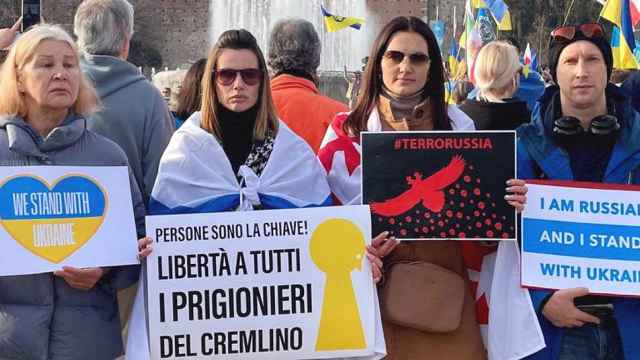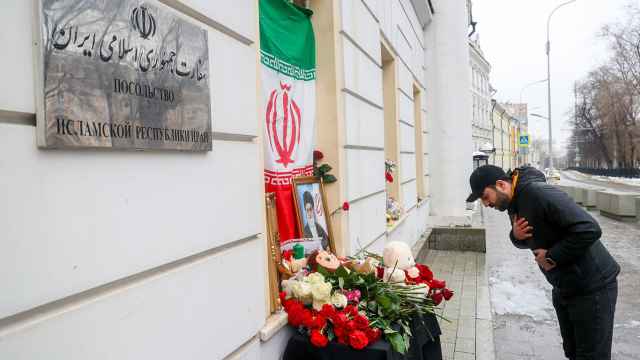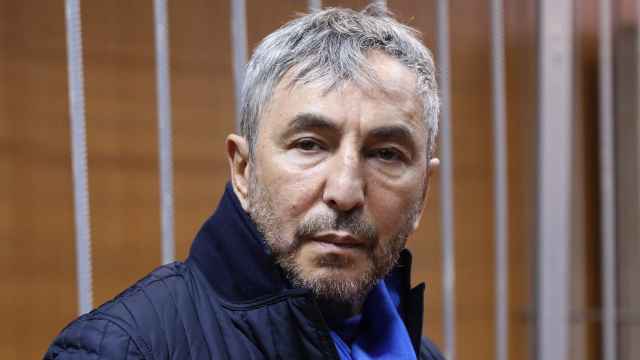Representatives of 200 New York bars and restaurants refusing to serve Russian liquor have gathered to poor Russian vodka into the street in the latest such boycott display against Russia's anti-gay propaganda law as outrage over the law spreads, American media reported.
The protest — one of dozens in recent weeks amid fervent calls to boycott not only Russian vodka, but also the Olympic Games in Sochi — coincides with reassurances from the International Olympic Committee that officials are engaged in "quiet diplomacy" with the Russian government to ensure that the so-called anti-gay propaganda law does not affect the Winter Olympics.
President of the United Restaurant and Tavern Owners Association Paul Hurley, one of the organizers of Monday's "vodka dumping" protest, said "enough is enough" at the event and called for a boycott throughout all of New York city.
The law that has sparked so much outrage has been dubbed "anti-gay," and it stipulates fines of between 4,000 rubles and one million rubles ($124 to $31,000) for promoting homosexuality among minors and was signed by President Vladimir Putin in late June. Critics say the vague wording of the law leaves too much leeway for police who enforce it, meaning anybody who "acts gay" could be detained.
Celebrities and cultural figures worldwide have spoken out against the law, with prominent playwright Harvey Fierstein saying recently in an op-ed for the New York Times that it puts Russia on par with Nazi Germany.
U.S. gay rights activist Dan Savage also urged people to boycott Russian vodka in the Seattle newspaper Stranger, saying a boycott would ''draw international attention to the persecution of gay men, lesbians, bisexuals, trans people and straight allies in Putin's increasingly fascistic Russia."
So far, there have been "vodka dumping" protests in New York, Los Angeles, Philadelphia, and Chicago.
On Monday, American pop singer Lady Gaga criticized attacks on LGBT individuals and called the Russian government "criminal" on Twitter.
And Olympic officials appear to be continuing their campaign to ease any tensions stemming from the controversial law's implementation at the upcoming games in Sochi.
IOC presidential candidate Ng Ser Miang told the Associated Press on Monday that "the IOC has made a very strong point that they will be against any action that would discriminate against participants at the Sochi Games, whether it's officials, media, visitors or the athletes," saying that discussions with Russian officials were ongoing over the matter.
As for a potential Olympic boycott, Ng said it would be "misplaced."
"We have learned from history that the ones who really suffer will be the athletes who have spent years preparing for the Games. I do not think we have the right to deprive them of the opportunity to take part in the Games," Ng said.
A Message from The Moscow Times:
Dear readers,
We are facing unprecedented challenges. Russia's Prosecutor General's Office has designated The Moscow Times as an "undesirable" organization, criminalizing our work and putting our staff at risk of prosecution. This follows our earlier unjust labeling as a "foreign agent."
These actions are direct attempts to silence independent journalism in Russia. The authorities claim our work "discredits the decisions of the Russian leadership." We see things differently: we strive to provide accurate, unbiased reporting on Russia.
We, the journalists of The Moscow Times, refuse to be silenced. But to continue our work, we need your help.
Your support, no matter how small, makes a world of difference. If you can, please support us monthly starting from just $2. It's quick to set up, and every contribution makes a significant impact.
By supporting The Moscow Times, you're defending open, independent journalism in the face of repression. Thank you for standing with us.
Remind me later.





